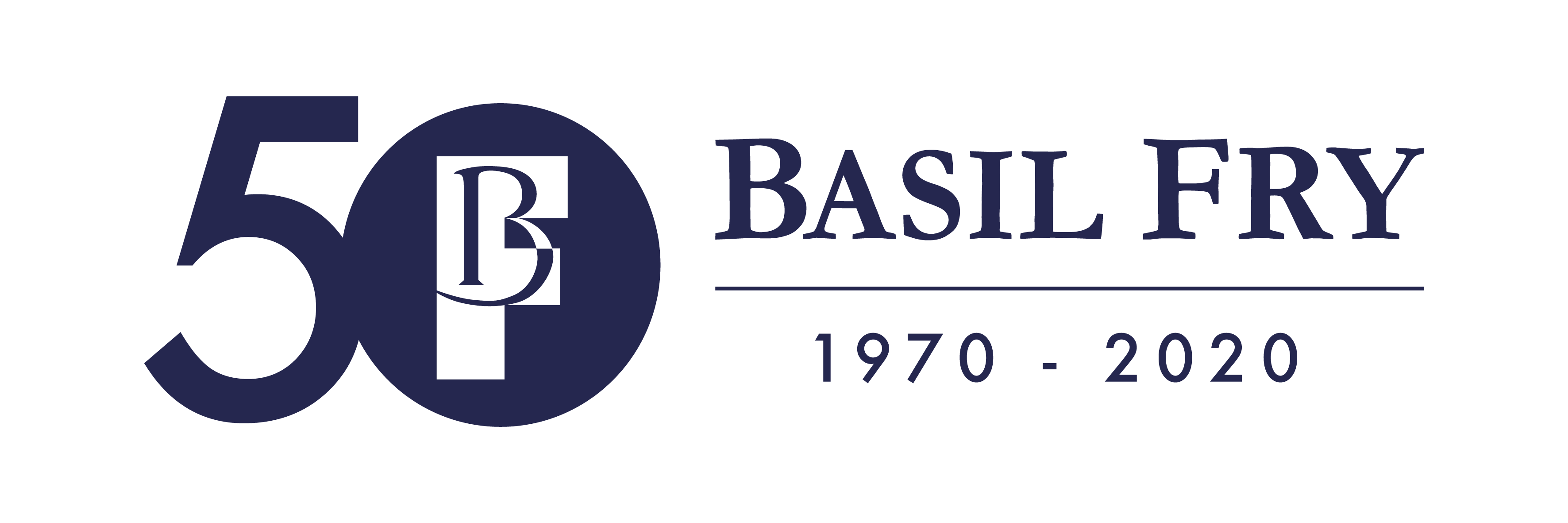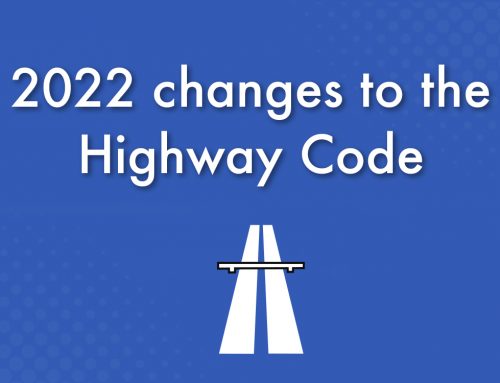Essential risk management & insurance advice during the Covid-19 pandemic
The coronavirus pandemic is undoubtedly causing significant strain on every business in the removals and storage industry. It is crucial, however, that you make every effort to protect your assets, as a loss at this time could also put your business in jeopardy.
During times of mass unemployment, economic recession/strain, and school holidays, it is an unfortunate reality that arson, theft and malicious damage crime rates increase. Indeed, two supermarket delivery vans were subject to an arson attack less than an hour after the Prime Minister issued the ‘lockdown’ order.
We advise the following measures be put in place to ensure your vehicles, customers’ goods in storage, buildings and other assets are as safe as possible.
Vehicle Storage Advice
If you have access to a storage facility or other warehouse with available space, there will be the temptation to park vehicles inside. Remember, while parking vehicles inside may reduce the likelihood of theft and vandalism, it will not remove exposure to fire. If you do park any vehicles inside, you must ensure that the vehicle batteries are disconnected, and tanks fully drained of fuel.
If you park vehicles outside, you should allow as much separation as possible, as this will reduce the likelihood of fire spreading between vehicles, and park the vehicles away from any buildings.
Customers’ Goods in Store / Other Business Assets
Continuing storage charges will support your business through periods where other sources of revenue are uncertain. If your storage premises are subject to a significant loss during this time, not only will this vital revenue be lost, but, if you own your building, you could also face losing your most valuable asset.
You should ensure any building you own or lease and any stored goods are sufficiently protected, particularly as it is highly likely the premises will be unoccupied for a prolonged period.
The traditional containerised storage approach adopted by the removals industry means it is unlikely that a substantial value of customers’ goods could be stolen. However, it is common for arson to occur following a break-in, and this is a more significant concern.
With regards to arson risk, where you own or lease storage premises, and it does not have 24-hour security or monitored CCTV, you should perform inspections as regularly as you can to monitor security. You should ideally also discuss risk management with the owners or occupiers of buildings which are adjoining or close-by, as fire can quickly spread between neighbouring properties. If you use trade or other third-party storage, such as self storage, you should enquire with the provider to ensure they have similar controls in place.
Generally, you should ensure all waste, pallets and other flammable materials are either cleared or stored a significant distance from any building (or vehicle). You must also remember to follow guidance from the Health & Safety Executive on how to store any gas bottles you keep on-site (for use on a Fork-Lift Truck, for example). Calor has published some useful information on this: https://www.calor.co.uk/gas-bottles/advice/storing. While you carry out your checks, you should make sure your neighbours are also taking a sensible approach.
Marine Shipments
Marine Insurance Certificates will include cover for storage when it is incidental to transit (i.e. this does not include any period of storage which you separately charge for before or after shipping). This cover is typically limited to a period of up to 60 days. There will inevitably be delays for some consignments due to the numerous COVID-19 pandemic-related restrictions. You must notify your broker to extend cover for each shipment.
Cyber Attack / Fraud
The National Crime Agency (NCA) has published a warning that organised, and cyber criminals are exploiting the current COVID-19 pandemic.
You should be particularly cautious where you receive any requests to share any financial or personal information. In addition, consider the authenticity of emails before clicking links or opening attachments.
Your Insurance Policies
While following the above recommendations will help reduce the likelihood of loss or damage occurring, it is impossible to remove the risk that your assets or stored customers’ goods could be damaged or destroyed during this challenging time. It is, therefore, vital that you maintain full insurance cover for your business.
Other important considerations:
- You are legally required to cover vehicles that are not declared SORN for third party risks.
- Your motor policy may be issued on declaration basis, so any return premiums due after reducing cover (e.g. from Comprehensive to Third Party, Fire & Theft) might not be processed until the end of the current declaration period. You should check with your broker to see if a declaration period applies.
- Any return premiums for reducing or removing cover will likely not be provided to you for up to three months after the effective date, as it takes some time for insurers to administer premium rebates. You may not have any premium returned to you until after the current crisis is over.
- You may need to notify your insurers if a building you insure, be it owned or leased, will be unoccupied for a period of longer than fourteen days. The cover may then be restricted, but this varies per insurer, so you should speak with your broker.
- If you pay by instalment to a premium financing company, such as Premium Credit or Close Premium Finance, you should check to see how many payments you have left, as the agreements are often subject to just ten monthly payments. Your broker can help with this.
- If you are suffering from financial difficulties, you should contact your premium financing provider directly before you default on a payment.
We wish you all the best during this difficult time. If you would like to discuss any of the points raised above, please contact your broker.
Covid-19 and the insurance industry
There have been many questions raised relating to whether insurance cover is provided for losses caused by the COVID-19 pandemic.
A pandemic is an ‘uninsurable’ risk, so, broadly speaking, the insurance industry does not provide cover. There are several other risks which are uninsurable, such as war and nuclear disasters. In practice, if these types of risk wereinsured, all insurance premiums would need to increase significantly so the insurers could fund claims. Premiums would become so expensive that they would be unaffordable. The insurance industry is not suited to provide compensation for population-level or pandemic events. Only governments have access to capital at this scale.
To answer a few specific questions:
- Although Business Interruption Insurance protects loss of revenue, the cover is provided only when there is physical damage at your premises (e.g. damage to a building caused by fire or flood). Some policies include a nominal disease extension, but the cover will be restricted and may not adequately compensate your business.
- Liability Insurance policies (i.e. Public, Products and Employers’ Liability) by their very nature cover legal liability, not physical property or loss of business revenue.
- Travel Insurance policies mayprovide cover for cancellations, depending on the date of the trip, the time you made the booking and the destination.
- The World Health Organisation declared COVID-2019 a Public Health Matter of International Concern on 30thJanuary 2020. Since this time, the UK Government, via the Foreign & Commonwealth Office (FCO), has publicised related travel advice for every destination around the world.
- Your insurance cover would be limited for bookings made after 30thJanuary 2019. Insurers will also not provide medical-related cover to individuals who travel to destinations against FCO advice.
- You should speak to your broker to discuss specific trips.
Please speak with your broker if you have any specific questions relating to your insurance policies.
This document has been prepared for the removals and storage industry by:

Essential risk management & insurance advice during the Covid-19 pandemic
The coronavirus pandemic is undoubtedly causing significant strain on every business in the removals and storage industry. It is crucial, however, that you make every effort to protect your assets, as a loss at this time could also put your business in jeopardy.
During times of mass unemployment, economic recession/strain, and school holidays, it is an unfortunate reality that arson, theft and malicious damage crime rates increase. Indeed, two supermarket delivery vans were subject to an arson attack less than an hour after the Prime Minister issued the ‘lockdown’ order.
We advise the following measures be put in place to ensure your vehicles, customers’ goods in storage, buildings and other assets are as safe as possible.
Vehicle Storage Advice
If you have access to a storage facility or other warehouse with available space, there will be the temptation to park vehicles inside. Remember, while parking vehicles inside may reduce the likelihood of theft and vandalism, it will not remove exposure to fire. If you do park any vehicles inside, you must ensure that the vehicle batteries are disconnected, and tanks fully drained of fuel.
If you park vehicles outside, you should allow as much separation as possible, as this will reduce the likelihood of fire spreading between vehicles, and park the vehicles away from any buildings.
Customers’ Goods in Store / Other Business Assets
Continuing storage charges will support your business through periods where other sources of revenue are uncertain. If your storage premises are subject to a significant loss during this time, not only will this vital revenue be lost, but, if you own your building, you could also face losing your most valuable asset.
You should ensure any building you own or lease and any stored goods are sufficiently protected, particularly as it is highly likely the premises will be unoccupied for a prolonged period.
The traditional containerised storage approach adopted by the removals industry means it is unlikely that a substantial value of customers’ goods could be stolen. However, it is common for arson to occur following a break-in, and this is a more significant concern.
With regards to arson risk, where you own or lease storage premises, and it does not have 24-hour security or monitored CCTV, you should perform inspections as regularly as you can to monitor security. You should ideally also discuss risk management with the owners or occupiers of buildings which are adjoining or close-by, as fire can quickly spread between neighbouring properties. If you use trade or other third-party storage, such as self storage, you should enquire with the provider to ensure they have similar controls in place.
Generally, you should ensure all waste, pallets and other flammable materials are either cleared or stored a significant distance from any building (or vehicle). You must also remember to follow guidance from the Health & Safety Executive on how to store any gas bottles you keep on-site (for use on a Fork-Lift Truck, for example). Calor has published some useful information on this: https://www.calor.co.uk/gas-bottles/advice/storing. While you carry out your checks, you should make sure your neighbours are also taking a sensible approach.
Marine Shipments
Marine Insurance Certificates will include cover for storage when it is incidental to transit (i.e. this does not include any period of storage which you separately charge for before or after shipping). This cover is typically limited to a period of up to 60 days. There will inevitably be delays for some consignments due to the numerous COVID-19 pandemic-related restrictions. You must notify your broker to extend cover for each shipment.
Cyber Attack / Fraud
The National Crime Agency (NCA) has published a warning that organised, and cyber criminals are exploiting the current COVID-19 pandemic.
You should be particularly cautious where you receive any requests to share any financial or personal information. In addition, consider the authenticity of emails before clicking links or opening attachments.
Your Insurance Policies
While following the above recommendations will help reduce the likelihood of loss or damage occurring, it is impossible to remove the risk that your assets or stored customers’ goods could be damaged or destroyed during this challenging time. It is, therefore, vital that you maintain full insurance cover for your business.
Other important considerations:
- You are legally required to cover vehicles that are not declared SORN for third party risks.
- Your motor policy may be issued on declaration basis, so any return premiums due after reducing cover (e.g. from Comprehensive to Third Party, Fire & Theft) might not be processed until the end of the current declaration period. You should check with your broker to see if a declaration period applies.
- Any return premiums for reducing or removing cover will likely not be provided to you for up to three months after the effective date, as it takes some time for insurers to administer premium rebates. You may not have any premium returned to you until after the current crisis is over.
- You may need to notify your insurers if a building you insure, be it owned or leased, will be unoccupied for a period of longer than fourteen days. The cover may then be restricted, but this varies per insurer, so you should speak with your broker.
- If you pay by instalment to a premium financing company, such as Premium Credit or Close Premium Finance, you should check to see how many payments you have left, as the agreements are often subject to just ten monthly payments. Your broker can help with this.
- If you are suffering from financial difficulties, you should contact your premium financing provider directly before you default on a payment.
We wish you all the best during this difficult time. If you would like to discuss any of the points raised above, please contact your broker.
Covid-19 and the insurance industry
There have been many questions raised relating to whether insurance cover is provided for losses caused by the COVID-19 pandemic.
A pandemic is an ‘uninsurable’ risk, so, broadly speaking, the insurance industry does not provide cover. There are several other risks which are uninsurable, such as war and nuclear disasters. In practice, if these types of risk wereinsured, all insurance premiums would need to increase significantly so the insurers could fund claims. Premiums would become so expensive that they would be unaffordable. The insurance industry is not suited to provide compensation for population-level or pandemic events. Only governments have access to capital at this scale.
To answer a few specific questions:
- Although Business Interruption Insurance protects loss of revenue, the cover is provided only when there is physical damage at your premises (e.g. damage to a building caused by fire or flood). Some policies include a nominal disease extension, but the cover will be restricted and may not adequately compensate your business.
- Liability Insurance policies (i.e. Public, Products and Employers’ Liability) by their very nature cover legal liability, not physical property or loss of business revenue.
- Travel Insurance policies mayprovide cover for cancellations, depending on the date of the trip, the time you made the booking and the destination.
- The World Health Organisation declared COVID-2019 a Public Health Matter of International Concern on 30thJanuary 2020. Since this time, the UK Government, via the Foreign & Commonwealth Office (FCO), has publicised related travel advice for every destination around the world.
- Your insurance cover would be limited for bookings made after 30thJanuary 2019. Insurers will also not provide medical-related cover to individuals who travel to destinations against FCO advice.
- You should speak to your broker to discuss specific trips.
Please speak with your broker if you have any specific questions relating to your insurance policies.
This document has been prepared for the removals and storage industry by:







